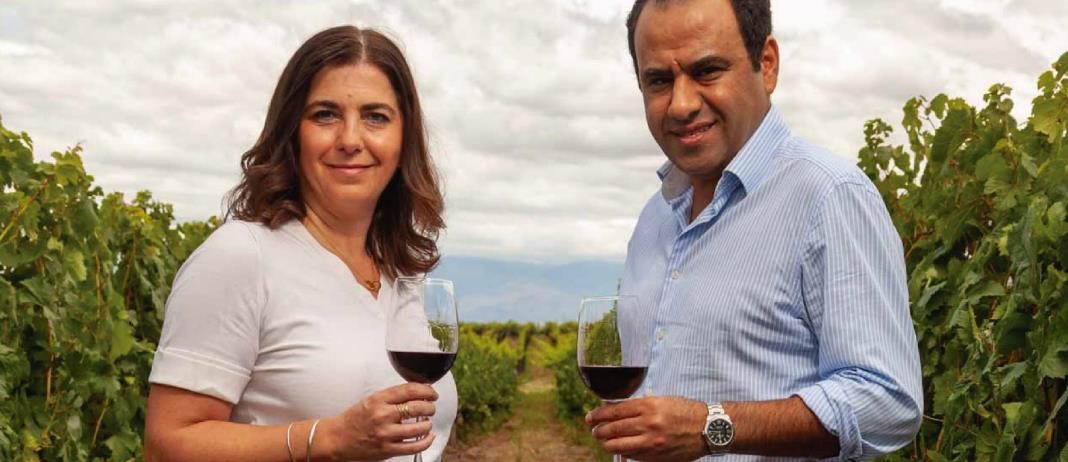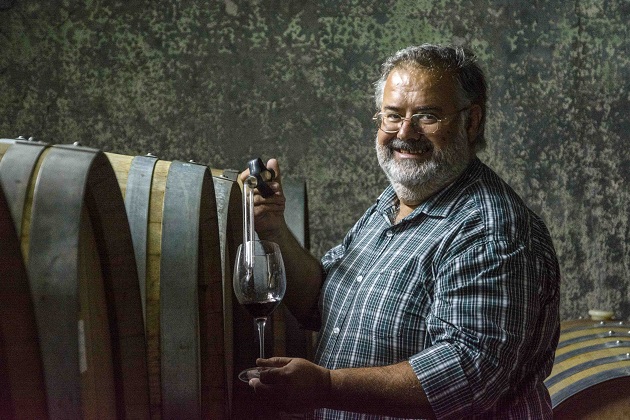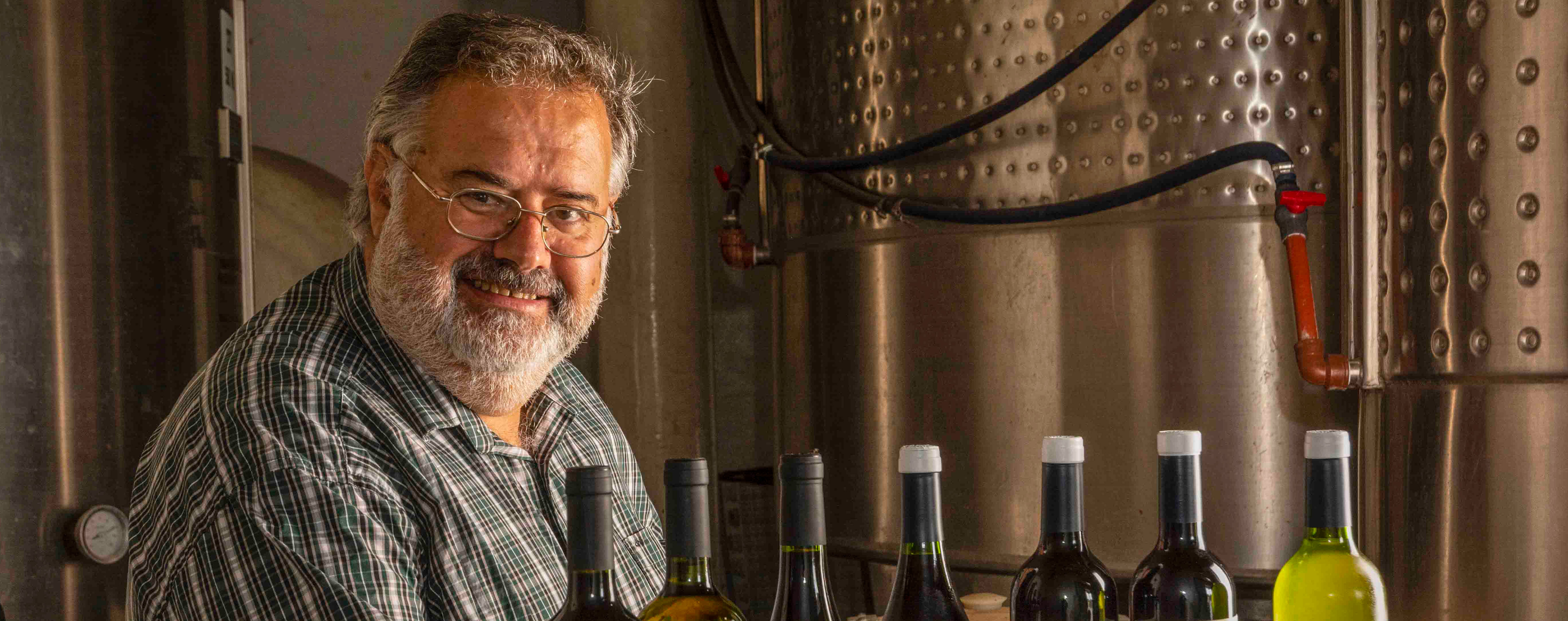‘We can see the market for natural wines growing significantly’
Making Malbec with no-added sulphites

Argentina’s leading producer and exporter of certified organic wines, Domaine Bousquet, has released its first wine carrying Regenerative Organic Certification (ROC).
Co-owner and CEO Anne Bousquet commented: “We were delighted to achieve ROC in 2022, and now the launch of our first wine with this status gives us the opportunity to communicate to the consumer our regenerative organic approach, our commitment to combatting climate change and our 360˚ sustainability ethos. Hopefully, we can also encourage other wineries around the world to work towards gaining ROC along the way.”
Domaine Bousquet’s first wine to carry the certification, Virgen Vineyards Organic Malbec 2022, is made from grapes grown in the foothills of the Andes – from a 672-acre estate in Gualtallary, a sub-zone of Tupungato in Mendoza’s Uco Valley.
Like the rest of the Virgen line, it’s made from organic grapes with no sulphites added during the winemaking process. Instead of using SO2, Anne’s husband Labid Ameri told me, they rely on healthy grapes and a “super-clean” winery.
To protect against faulty flavours associated with harmful bacteria and oxidation, they also:
- Store the wine at a cooler temperature than usual post-fermentation;
- Taste the wine weekly over an extended period to ensure nothing untoward occurs;
- And swaddle the bottles in thermal blankets to keep it at a constant cool temperature during shipment.

Some other interesting details behind the winemaking:
- Cold maceration at 10°C (50°F) for 48 hours;
- 50% indigenous yeasts and 50% selected yeasts for the fermentation;
- A maximum fermentation temperature of 25-27°C (77-81°F).
fruit flavors”.
Winemaker Marcelo Miras: the challenge of sustainable irrigation

Having worked in the wine industry for over three decades, winemaker Marcelo Miras has made his mark on Argentina’s Alto Valle de Río Negro wine region. After gaining experience at major wineries such as Humberto Canale and Bodega del Fin del Mundo, Marcelo chose to change tack, settling with his family in Mainqué at a vineyard that dates to 1958. There, he founded Bodega Marcelo.
The purchase of the vineyard in 2017 was a watershed moment for Marcelo, who immediately set about working on improving irrigation methods in a region that has traditionally used the flood technique. Although water was plentiful and excellent quality thanks to the Río Negro, he was determined to use it more efficiently and so began the difficult transition to irrigation channels. He explains that this didn’t just involve technical changes in the field, but also changing the culture of the people who worked in them.
“Even though we had plenty of water, we asked ourselves how we could improve the irrigation system, how to get more efficient and make better use of the water. Because although there’s a lot of it and it ends up in the Atlantic, you see that other provinces are having serious issues with water supply and you never know what might happen in the future,” he points out.
The human challenge of making such changes, he says, should not be underestimated. He believes it’s not just about changing the irrigation system and levelling the land, but changing minds. From simply opening sluice gates to intricate irrigation planning, the transformation has required constant effort to educate workers about new, more efficient and environmentally friendly methods.
In addition to transforming the irrigation system at his new winery, Marcelo has also set up the business with environmentally responsible principles. From separating their waste to implementing recycling and composting solutions, Marcelo and his family – who also live on the estate – have changed their waste management protocols and are seeking to spread awareness and connect with the local community on this subject.
Says Marcelo: “My wife and eldest daughter live with me at the vineyard. So, we thought, what’s the easiest thing to do? Gather waste, put it in bags and take it to the municipal dump. Sometimes you do things automatically, without thinking about it or really being aware of what you’re doing. But this was a new winery, so we thought why not start working differently and separate our waste, at home and the little waste generated at the winery? Because the winery is productive, so there’ll always be some by-products.”
Marcelo says that he’s also ventured outside his own industry and spoken to the town mayor – the local town has a population of around 6,000 – to consider strategies to re-use products such as glass packaging, for example. (There are examples of this from another winery towards the end of this piece.)
In the vineyard, Marcelo has also demonstrated a profound commitment to caring for his grapes, and most of all, the end product: employing organic methods and avoiding added sulphites. “At the vineyard we bought, we built a small winery, a genuine garage winery because it was set up in an actual garage previously used to store tractors. We have a capacity of 30,000L. Both the estate and the winery are organically certified by Letis. We were also recently inspected by Wines of Argentina (WofA) and Bodegas de Argentina. Whatever happens with our grapes and wine, we’re definitely going to do right by the environment.”
This interview first appeared on the Wines of Argentina website.
'The tourists who come to stay at the accommodation prefer a more sustainable vision'
How other wineries in Argentina manage their waste
- At Dal Borgo in Salta, they separate their waste into three large categories: vineyard, winery and tourist centre. The dry waste from the latter two is sorted and donated to the Cafayate Art School. “The students use our donations to make shopping baskets and for other crafts,” says agricultural engineer Eugenia Mestre.
- Rosell Boher in Mendoza sells its used bottles to glass manufacturer Veralia. The proceeds are donated to the Humberto Notti Pediatric Hospital Foundation. Plastic and cardboard waste is donated to different institutions that concentrate on crafts or produce bricks, curtains, and furniture with recycled material. “We started out with this several years ago, partially because we believed in it and partially because the tourists who come to stay at the accommodation prefer a more sustainable vision for our services. Today, we have several certifications and we’re in the process of being certified as a B Corp,” says manager Alejandra Gil Posleman.
- Humberto Canale in Río Negro has installed 196 photovoltaic panels on roofs to produce clean energy that supplies 40% of the winery’s needs. In addition, the winery’s byproducts and cuttings from the pruning process are converted into compost.

 English
English French
French







.png)


